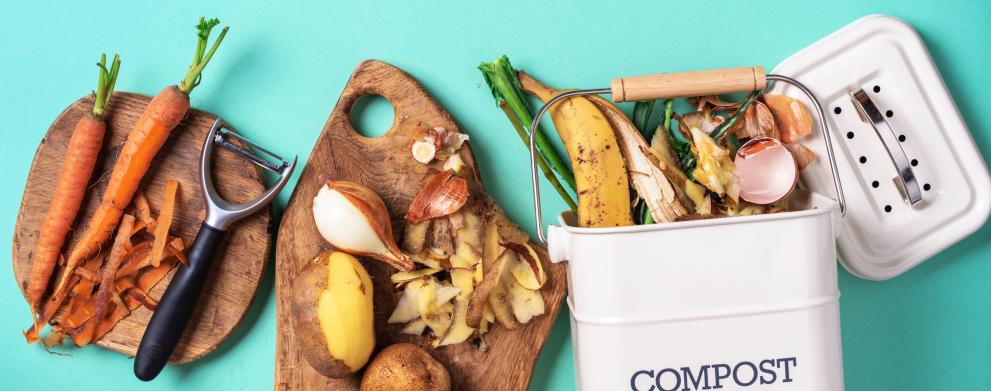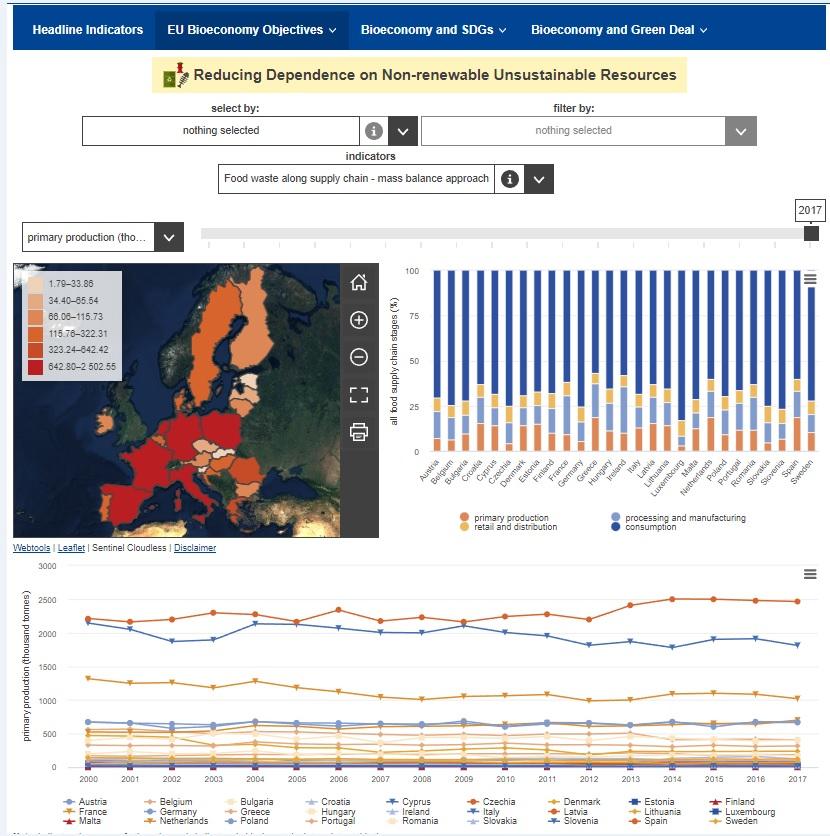
The JRC has developed a harmonised methodology to estimate food waste generated by EU countries.
The new method - as reported in De Laurentiis et al, 2021 - quantifies food waste at country level allowing the comparison of food waste generation across countries.
The EU Bioeconomy Monitoring System has been updated to include the JRC food waste indicators.
Accounting for food waste
The JRC has developed a harmonised methodology to estimate food waste generated by EU countries in support of the Waste Framework Directive (2008/98/EC) annual reporting obligation for food waste generation.
The model developed computes waste generated at each step of the supply chain and by food group.

Food waste has been identified as one of the priority areas of the Circular Economy Action Plan and the Farm to Fork Strategy of the European Commission, both important components of the European Green Deal.
The food waste indicator can support tracking progress towards the EU’s goal to halve the per capita food waste at retail and consumer levels by 2030, thus contributing to Goal 12 of the Sustainable Development Goals.
Most food waste generated by consumers
The EU Bioeconomy Monitoring System displays food waste along the supply chain and food waste per food category, and is presented at Member State level.
For each country, the consumption stage is identified as the major contributor to the total amount of food waste generated.
At EU level and across the whole supply chain, the food groups that produce the largest amount of food waste overall are vegetables, fruit and cereals, although there are important variations from country to country.
EU strategies to address food waste
As one of its strategies to develop solutions and tools to address consumer food waste, the Commission is currently setting up a multi-disciplinary European Consumer Food Waste Forum.
Researchers and practitioners will work together in this forum to find solutions and develop tools to help reduce consumer food waste.
Other new indicators appearing in the EU Bioeconomy Monitoring System this week are Crop yield, Recycling rate of municipal waste and Share of renewables for transport, electricity and heating & cooling.
The EU Bioeconomy Monitoring System is a JRC-led action of the EU Bioeconomy Strategy.
Further information
- EU Bioeconomy Monitoring System
- Building a balancing system for food waste accounting at National Level
Related Content
EU Bioeconomy Monitoring System
Building a balancing system for food waste accounting at National Level
Details
- Publication date
- 21 October 2021
